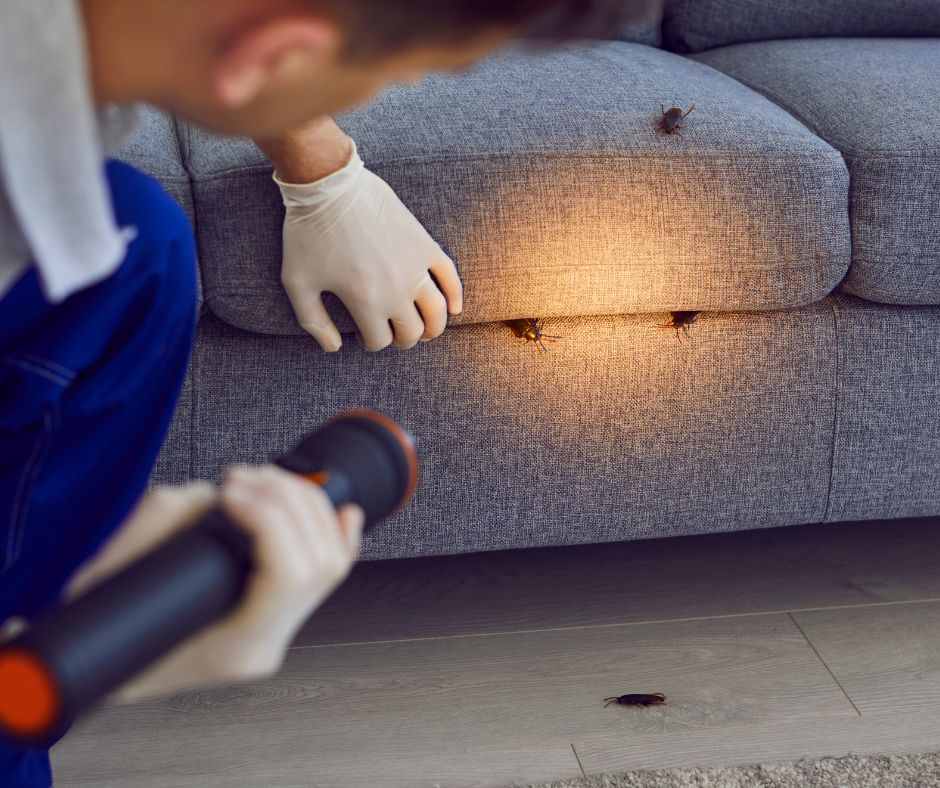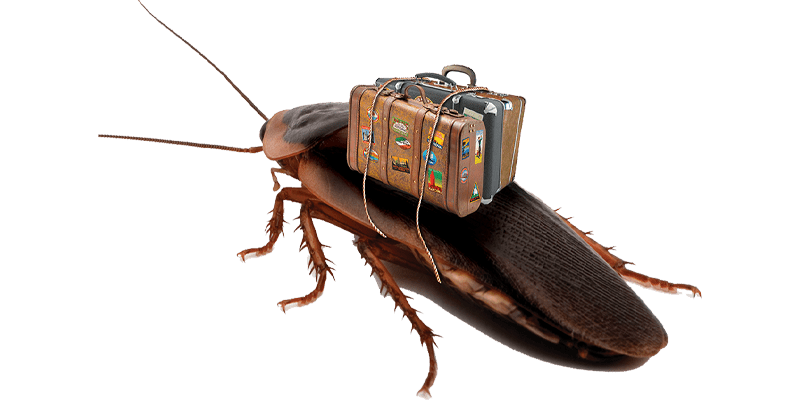Find the Top Ant Exterminator Near Me for Immediate and Reliable Solutions
Find the Top Ant Exterminator Near Me for Immediate and Reliable Solutions
Blog Article
Discover the Value of Parasite Control in Keeping a Healthy And Balanced Setting and Treatment Techniques

The Function of Bugs in Communities
Insects, commonly viewed only as problems, play a multifaceted role in ecological communities that is essential for keeping eco-friendly balance. They contribute considerably to various ecological procedures, including pollination, vitamins and mineral cycling, and insect control. Lots of insect varieties, such as butterflies and bees, are important pollinators for a large range of plants, which in turn supports biodiversity and food production.
Additionally, bugs serve as victim for various predators, producing an essential web link in food webs. This connection makes sure the survival of various varieties and assists control populations within communities (Termite treatment Port Charlotte). Furthermore, decomposer pests, such as particular beetles and fungi, are important in breaking down raw material, hence enhancing soil and assisting in nutrition recycling.
Alternatively, while pests can be helpful, their overpopulation or invasion right into non-native environments might disrupt these eco-friendly features. This complexity emphasizes the significance of comprehending insect characteristics, as effective insect administration strategies must consider both their eco-friendly duties and possible effects on human activities. Balancing pest presence while lessening injury is necessary for protecting the integrity of communities and making certain farming productivity.
Health And Wellness Dangers Related To Insects
The presence of pests in various atmospheres extends beyond their ecological roles, as they also posture considerable wellness threats to animals and humans. Lots of bugs, including rodents, parasites, and bugs, are carriers of conditions that can have major wellness effects. Rats are known to send hantavirus and leptospirosis, both of which can lead to serious respiratory system and kidney problems, respectively.
Bugs such as insects and ticks are infamous for spreading vector-borne illness like jungle fever, dengue fever, and Lyme disease. These diseases can cause high morbidity and mortality rates, particularly in prone populaces. Furthermore, bugs like vermins and roaches can worsen allergies and bronchial asthma, adding to respiratory troubles in people, specifically those with pre-existing problems.
Moreover, the visibility of bugs can result in psychological stress and discomfort, impacting general well-being. Contamination of food and surface areas by insect droppings and stays can result in foodborne diseases, highlighting the value of preserving sanitary conditions. Recognizing the health dangers connected with pests is important in acknowledging the necessity of effective insect monitoring methods to secure human and animal health and wellness.

Advantages of Reliable Parasite Control
Efficient pest control is important for maintaining a secure and healthy and balanced setting, as it consistently mitigates the countless risks associated with parasite problems. One of the main advantages of efficient bug management is the reduction of wellness threats.
Additionally, efficient bug control safeguards home and structures from damage. Lots of pests, like termites and carpenter ants, can trigger extensive architectural damage that may require expensive repair work. By proactively taking care of these problems, businesses and house owners can protect their financial investments.
An additional substantial benefit is the enhancement of general lifestyle. A pest-free environment adds bird removal to psychological wellness and lowers anxiety related to problems. In addition, effective insect control cultivates a much safer environment for kids and pet dogs, making certain that homes continue to be havens without disease-causing microorganisms and hazardous chemicals.
Usual Pest Control Techniques

In the world of bug administration, numerous strategies are employed to combat problems successfully. These methods can be extensively categorized right into 3 primary strategies: social, mechanical, and chemical controls.
Cultural control includes modifying methods to lower parasite facility, survival, and reproduction. This might consist of plant rotation, appropriate sanitation, and environment manipulation, which collectively develop an environment less helpful to pest spreading.
Mechanical control utilizes physical approaches to get rid of insects (Termite treatment Port Charlotte). Methods such as vacuum cleaners, obstacles, discover here and catches are frequently used to straight eliminate bugs from an area. This strategy is specifically efficient for handling rodents and insects without the use of dangerous chemicals
Chemical control includes the application of pesticides to manage pests. These compounds can be categorized right into fungicides, insecticides, and herbicides, each targeting details kinds of parasites. It is crucial to use these chemicals deliberately, sticking to security guidelines and regulations to decrease potential injury to non-target varieties and the setting.
Each pest control method has its benefits and limitations, and typically, an integrated approach integrating multiple approaches yields the very best cause keeping a pest-free environment.
Lasting Pest Monitoring Practices
Sustainable parasite monitoring practices incorporate a variety of techniques created to decrease environmental influence while properly controlling bug populations. These practices focus on the use of eco-friendly techniques over chemical pesticides, thus reducing the threat of harm to non-target types, consisting of helpful bugs, wild animals, and humans.
Integrated Parasite Management (IPM) is a cornerstone of sustainable practices, integrating organic, social, mechanical, and chemical methods to handle bugs. For example, biological control involves introducing natural predators or parasites to suppress parasite populaces. Social practices, such as plant turning and polyculture, disrupt pest life cycles and enhance ecological community resilience.
Mechanical approaches, such as catches or obstacles, can efficiently prevent insect access without chemical treatment. Furthermore, keeping healthy environments via correct soil administration, plant health, and biodiversity can normally alleviate insect problems.
Education burns pest control and learning and awareness are vital parts, empowering areas and people to identify parasite threats early and apply safety nets. Termite treatment Port Charlotte. By fostering an alternative strategy that balances bug control with ecological honesty, sustainable bug management methods not only shield plants and structures however also add to a healthier setting for future generations
Conclusion

Understanding the wellness risks connected with parasites is essential in acknowledging the necessity of effective insect administration strategies to safeguard animal and human wellness.
Reliable pest control is necessary for preserving a risk-free and healthy and balanced setting, as it regularly minimizes the many risks linked with bug invasions.Integrated Parasite Management (IPM) is a foundation of sustainable practices, combining biological, social, mechanical, and chemical techniques to take care of bugs. By comprehending the role of insects, identifying involved wellness dangers, and utilizing diverse therapy techniques, a lasting strategy to pest monitoring can be accomplished. Integrated Parasite Monitoring (IPM) stresses a holistic approach that minimizes harm to valuable organisms while properly regulating parasite populaces.
Report this page